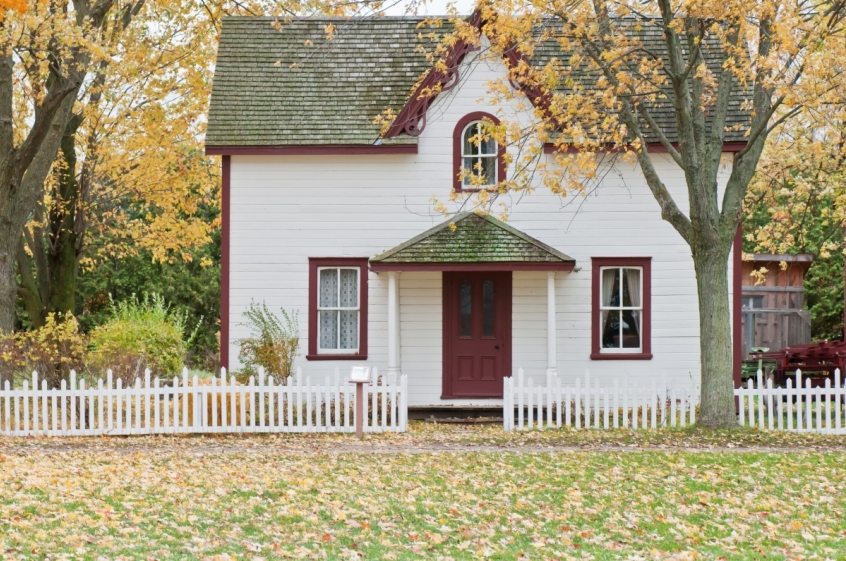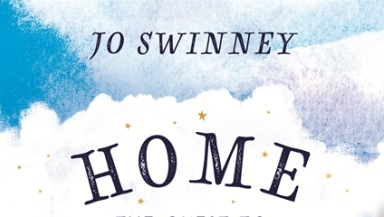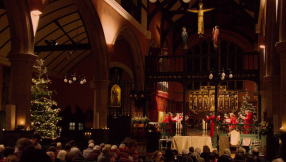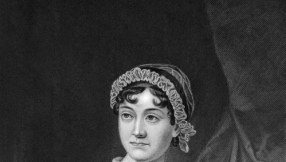
'What it is, is lost'. So began a poem I wrote some years ago in a workshop on the theme of 'Home'. The line was triggered by my parents moving from the house they'd built on land they'd bought in 1958, in which I had lived from the ages of five to nineteen and they for 38 years, and which had been the 'home' I returned to for decades. To add insult to injury, the couple who bought it had demolished my childhood bedroom to build an excrescence of an octagonal extension that ruined the house's simple modern lines.
What is 'home' to you? A real place, an imaginary one, or somewhere you hope to find after death? In her new, beautifully written and meticulously researched book Home: The Quest to Belong, Jo Swinney explores the many ways we seek and find home: through nostalgia, through our family, our culture, our country, our own personality, our relationships, our neighbourhood, house, church, work or past history – as well as the way we might deny any need for home by being a 'wanderer'. Jo herself, the daughter of pioneering Christian environmentalists, has lived in several different countries and dozens of houses, and her interest in the subject arises out of this, and her search for a place to belong, however temporarily.
As the daughter of European refugees myself, with no extended family in this country and precious little anywhere else, I can identify with her sense of rootlessness, or perhaps shallow roots in a number of different places. To be well planted in a place or a clan, or even both, is a form of privilege not everyone enjoys, especially in these days when everyone is encouraged to metaphorically 'get on their bike' and look for work, where mobility is a virtue and stability a sign of lack of initiative.

Swinney explores the landscape of home not only through the vagaries of her own life and work, but also through the often peripatetic and even shiftless life of the biblical David, before and during his kingship. Forced to be on the run for many years, with changing and complex relationships, he is a good model for finding a sense of home in our restless world. She uses him as an example both of someone who could find a sense of 'at-homeness' wherever and among whomever he happened to be at the time, and also one who was always ready to move at God's call.
The book is at times moving, at times laugh out loud funny – a sense of humour is a good thing to have when 'home' keeps shifting. Her reflections often plumb spiritual depths as well as drawing from wide reading of other Christian writers. It's a good theme from which to explore topics such as security, flexibility and our relationship with God and others. I kept thinking of Psalm 90, a favourite of mine, which locates our 'dwelling place' firmly in God and pleads for security and prosperity.
As an Anabaptist Christian I have found the concept of Jesus' followers being 'resident aliens' in this world a fruitful one (a funny footnote: in World War 2, German residents in Britain were classed as 'enemy aliens', but Austrians like my parents, their country having been annexed, were 'friendly enemy aliens'!). No home this side of God's Kingdom will be a lasting one, but we are called to 'seek the welfare of the city where I have sent you into exile' (Jeremiah 29:7), for thereby we will find our own welfare. The culture we find ourselves in may be unfamiliar or strange, our family or colleagues not the people we would have chosen to be with, or we may find it hard to bloom where we are planted, but in the light of our hope of an eternal home, where God comes to live with us (Revelation 21:3), we can find enough 'homeliness' to keep us going. As Swinney concludes, 'Home is the place where we live... among the people who love us... our culture, the food we eat... Home is where we belong, the place we come back to. Home is the end of our quest'.
Home: The Quest to Belong, by Jo Swinney, is published by Hodder and Stoughton, 2017.
Veronica Zundel is a freelance writer for the Christian market, has been a Mennonite for 24 years (half her Christian life) but since the closure of her congregation is attending her local parish church. She grew up in Coventry but now lives in North London with her husband, son and cat.













